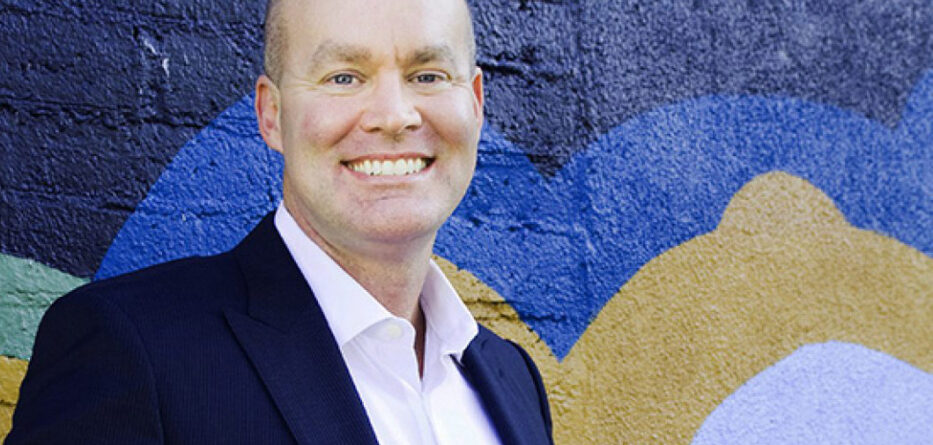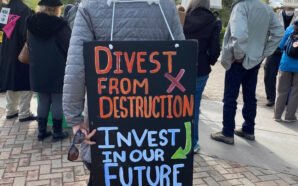Arturo Hilario
El Observador
The Cinequest Film & Creative Festival is back in downtown San Jose after a quick turnaround from its last run in the summer of 2023. The festival, which is returning to the downtown core 100 percent after splitting its time with Mountain View last year, will showcase 217 films from 45 countries. It will also showcase a Maverick Spirit Award celebration for actor and filmmaker Matthew Modine (known for his iconic portrayal of Private J.T. “Joker” Davis in Stanley Kubrick’s Full Metal Jacket as well as Dr. Martin Brenner in Netflix’s Stranger Things.
Along with the movies and special award events, several conversations surrounding the role of artificial intelligence in our lives and specifically in art and technology spaces took place days before the festival began.
With Cinequest being hit hard by the pandemic, which shut it down mid-festival in March of 2020, there was change and location moves for the festival, from the Icon Theater in Mountain View to the Pruneyard Shopping Center in Campbell. Now though the festival returns to its origins full time, from the iconic California Theater on South 1st Street to the Hammer Theater down the way, these venues have hosted thousands of independent films across Cinequest’s history, and they’re once again in the spotlight alongside opening and closing night events and many meet ups across restaurants and venues in downtown.
All of this was talked about recently with Cinequest CEO and Co-Founder Halfdan Hussey who joined us to discuss what to expect if you are attending the festival, the return of the festival to help reinvigorate downtown San Jose, and how important the discussions around AI are in our society as it evolves into more than a technical tool and into something that can be used for a multitude of intentions.
Information and tickets to the Cinequest Film & Creativity Festival are available at www.cinequest.org.
Can you touch on the theme of this year, “uplift”, and how the team landed on that?
It’s a super important theme to us. A couple of years ago, right before the pandemic, actually, one of our long term patrons who’s know, the kind of person you would expect to say this, he’s not ‘Mr. Jolly’, he came up to me and said, “you know, Cinequest gives me and so many people so much joy. I hope you know that.”
And it really stuck to me. It’s like I never thought of it that way because we think about it as presenting and showcasing, discovering these great films and art and these technologies and of bringing community together. But I never thought of the core kind of energy being joy and happiness, and that really made me feel good. So coming out here into 2024, when folks are dealing with a lot, there’s a lot of trepidations, crises globally, economically, people not knowing how to deal with things like AI, wars.
There’s a long list, and not that there’s not usually a list anyway, but this year, it seems like in 2023, folks are kind of had it. So we thought we need to do a theme that’s about uplifting them, helping them through art, technology, and community, people getting together to feel great about themselves and others and the world and look forward to the future with confidence.
So we love the theme. That doesn’t mean every film we’re going to play is going to be a comedy or uplifting, inspirational movie. But we do have a ton of comedies and uplifting, inspirational movies and events, but the energy of it, the overall transformative energy. So that’s the kind of energy you’re going to have at Cinequest. Inspiring, fun, uplifting, laughing with people, sharing with people, enhancing your life and expanding your mind.
And touching on the idea of community, because that is a big part of what Cinequest festival is, what are your thoughts on refocusing back on the venues and the parties in San Jose’s core and surrounding downtown area?
I remember a San Jose leader in arts and also in the food industry, Chris Esparza, told me that none of these things that stick to you because you don’t know when you’re doing work a number of years ago, 15 years ago, that just the community takes so much pride in Cinequest, the local community, and it just makes everybody feel so great when it happens and it has a lot of economic impact.
We’ve known that for a long time, and it’s been very hard for us personally to see what the pandemic did to San Jose based restaurants, hotels, small businesses. Very hard and wonderful people are no longer doing what they do. So it’s our job to help rebuild downtown San Jose, to infuse it with energy.
There’s plenty of great restaurants still and bars and to help now as we’re moving forward in cleaning up the issues, the pandemic, transforming the homelessness challenge, getting folks in safe housing and reinvigorating the food and beverage community in San Jose. That is important. And more people are living in downtown San Jose, so that’s a good thing. So this will all be part of know, getting folks back down to celebrate, feel great about the town.
That’s always been a town that I’ve loved and a city that I decided to build a company in an organization and to move to. I wasn’t born in San Jose. I just fell in love with it. It’s hard for us when we see the challenges that hardworking people go know that are just out of their control. And the pandemic was out of all of our control.
A wrench that got thrown in the festival’s plans last year was the Hollywood writers and actors strikes. How did you navigate that in creating this year’s festival?
Right? Yes. Great question. Because I really have this ability to block out and forget things that were not enjoyable in my life. I have an ‘erase’ button or something! So I completely forgot about it. But yes, the strikes. I didn’t take a side in the strikes, and I still don’t take a side in the strikes. They happened and they caused a lot of upheaval in the world of film making and television making, distribution and exhibition.
Even now we’ve had ramifications because of the strike. All of the releases, both the releases that were ready to go in 2023 and those that were close, they had to hold all those releases because they weren’t able to have the actors, the SAG actors, promote the films. So that’s created a glut of studio releases here in this 2024. And anyway, it’s just been something. There’s always something.
We thought we need to do a theme that’s about uplifting them, helping them through art and technology and community, people getting together to feel great about themselves and others and the world and look forward to the future with confidence.
That’s the thing about life and producing and being an entrepreneur. There’s always something to deal with. As they say, you can look at the crisis as an opportunity or you can just let it defeat you or hurt you. So we’re good at that. At Cinequest, we’ve always been good at facing, looking at opportunity out of crisis and then doing more for people when it occurs.
So last year, what was really cool is we were able to completely focus, as we do a lot anyway, on the new and emerging talent. So rather than doing the Maverick Spirit Awards for the big stars that wanted to come but couldn’t, we focused on all these new and emerging actors from around the globe. And it was really great.
So you always can find an advantage when there’s something like that that happens. But it was another unique challenge for everybody. And the film industry has gone through so many. We did very well in adjusting to the digital revolutions and the IP delivery revolutions. And then the pandemic was very difficult on everyone, and for the film industry and television industry it really was hard. We couldn’t film and get people together to film and it caused all kinds of havoc. Then the strike. So that’s three years, 2020 through 2023, where the film and television industry had major challenges just being able to create work.
Now, I don’t know how the independently financed films, the maverick cinema, has found a way because the quality of our submissions from around the globe has gone up the past two years, not down, and we were a little concerned about that, but not the case.
So the studio is really affected, but the independently financed, the maverick, they find a way, which is pretty cool.
I wanted to ask about the conversations surrounding artificial intelligence and art. And I was curious about what you guys learned about when you had that conversation last year for the first time and how it will go this year?
Well, our take on it is, first of all, we’re the perfect host. People told us, I was asked to do this by members of the artificial intelligence community because we’re a brand that’s trusted, so we can have open thought leadership conversations around AI in ways that other people can’t. Because I don’t invest in AI. I’m not an investor. My company does not have a vested interest in AI products.
So we’re really a fantastic place to hold these forums where we can explore AI. And we’re doing it in different ways. We have open conferences and keynotes and panels and mayoral town halls and all kinds of excitement and entertainment. But you would expect people to deal with things like the community issues that people are thinking about. Will this displace my job? Will this help my job? What are the dangers of this? Those things you’d expect, and we’ll deal with that. We have a panel presentation called the “Pitfalls and the Powers of AI”. But then we’re going to take it into the realm of Cinequest, which is creativity, consciousness in AI. How can this affect, and how is it going to affect our ability to create?
We see it already in AI generated imagery versus photographers and graphic artists just really challenging that space. And last year, in the summer, part of the strike that you mentioned, issues were about concerns from writers that producers no longer hire them to do the, for example, the successive seasons of their hit tv shows, they’ll just get an AI generated script based on the patterns that are seen and characters from the first season, things of this nature.
So, of course, nobody wants to see AI replace human intelligence, and I don’t think it can or will because it doesn’t have consciousness. It is a machine, at least if you believe in consciousness. So the ability, though, to harness it as a tool when one is creating, maybe, as somebody has explained to me, as a “second brain” versus as some dominating terminator. So these are the things that creative people have to face, and we need to embrace the opportunities and deal with the potential issues.
And sometimes there’s going to have to be policy, policy from political folks, policy from companies and individuals, and just good ethics, very important around AI, because we can do a lot of damage.
We’re seeing it right now doing some damage, and I won’t get into it, but when you think about asking an AI machine to give you information and you think it’s telling you the truth, and some programmer has programmed into it to tell you something else in a subtle way, or maybe not even subtle, well, that’s pretty dangerous. And again, displacement of creative people
I can go on this for hours. But anyway, it’s just an amazing situation that we just have to deal with. We can’t close our eyes on it because it’s here. Can it help us? I think so. Can it be a problem for creative people? Absolutely, too. So we have to mitigate the risks and issues and embrace the opportunity, in my opinion.
And it’s in its infancy, a little past infancy. But it’s interesting to see how it’s grown and being used by it as a tool. And like you said, some people see the negative or the positive sides of it, but it is a tool.
It is a tool, in my opinion. And just like all tools, from pens and typewriters to guns, a lot of times, guns are really a tool. It’s a mechanical instrument. Who has it? Who is using it? And for what purpose? So that’s kind of what it is. I think it’s a very powerful tool, probably more so than anything we’ve seen since the internet and nuclear power. So the stakes are higher and it’s amazing time to really have in depth conversations and share around it, I think.
Last question. Why do you recommend people come to downtown San Jose and check out Cinequest this year, from March 7-17?
Because you can’t get the Cinequest experience streaming a movie at your house or from your device. You just cannot. First of all, a lot of what we’re doing is world and US premieres. That means the first or second time it’s been seen by anyone. So it gives you the excitement of a wedding kind of situation or the birth situation that families have. Wow, this is it. The big day is here for these artists and we can share in that.
So that’s really exciting just right there. The second is that most of the films have the artists in attendance to present and interact with us, the audience and other artists. So that’s a really special experience so that you can hear from them, meet them, talk with them. Third is the social component. Now, some people don’t want social component. They want to sit in the theater, enjoy the film and go home. Fine, we’re not forcing you.
But for those of you that enjoy communicating with people and interacting, there are so many social experiences. And you mentioned we have found great venues this year. We have open, we’re calling them socials. They’re similar to meetups. We have, I think, eight of them planned. We’re doing them during the more of a happy hour time frame, from 4-6:30. And they’ll be announced during the festival regularly.
It’s a great way for people to meet each other and meet some of the artists that are in town. You don’t have to spend, there’s no ticket to go to them. Just show up and get yourself a drink and some food and enjoy interacting with community. Great ways to meet people or just a great date or a place to go with friends.
So that whole community social component is huge for Cinequest. And then the technology part we mentioned, we talked about it a lot. We always do that. And I think the AI is a place where you can really get a mind opening experience on that. So those are the things that make a difference. You can’t get that streaming a movie on any streaming service. Now we do have the movie part, too. That’s great. But again, it’s a special movie world premiere in a beautiful venue with lots of wonderful artists presenting other members of their community.
And then we have a throwback event, too. I’ll just mention this, too. We do mostly new, emerging, and futuristic, but we have this wonderful look at the masters of silent cinema going on this year again, which is one of the favorites of Cinequest and where you look at these masters of the 20s. We have a great film by Buster Keaton, Our Hospitality as well as The Mark of Zorro, and we have a world class organist who accompanies this powerful cinema. So you get sound and music and the power of the silent cinema and this beautiful theater, and people there laughing and applauding.
I mean, it’s a celebration and at an affordable price. We have not raised our prices during the inflationary times. We give away tickets, too, to those that just can’t afford our prices, but they’re very affordable. This is $14. You’re getting everything I just mentioned. I mean, it’s not even as much as you pay to go into a local plex to watch a film. And it’s so special.






